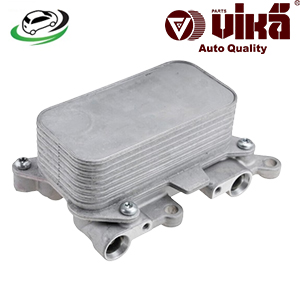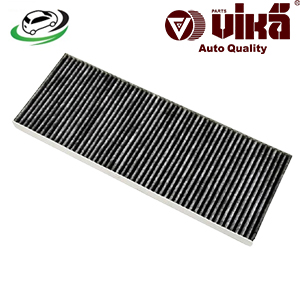-20%
Get Cabin Filter / Fresh Air Filter Audi B5 A4/ B5 S4 / VW Passat B5-1.8T/V6 30v/W8/1.8T/TDI 8A0819439A
The cabin filter, also known as the cabin air filter, is an essential component in a vehicle’s heating, ventilation, and air conditioning (HVAC) system. It plays a crucial role in ensuring the air inside the vehicle’s cabin is clean and free of contaminants. This overview covers the function, construction, common issues, maintenance, and benefits of the cabin filter.
Function of the Cabin Filter
The primary function of the cabin filter is to filter the air entering the cabin through the HVAC system. This helps ensure that the air occupants breathe is clean and free from pollutants. The key functions include:
- Air Quality Improvement:
- Pollutant Removal: The cabin filter captures airborne pollutants such as dust, pollen, smoke, and other particulates that can enter the vehicle through the air intake vents. This helps to improve the overall air quality inside the cabin.
- Allergen Reduction: It also reduces allergens, which is particularly beneficial for individuals with allergies or respiratory conditions.
- Protection of HVAC System:
- Preventing Contamination: By filtering out contaminants, the cabin filter helps protect the HVAC system components, such as the evaporator and heater core, from becoming clogged with debris.
- Maintaining Efficiency: A clean filter helps maintain the efficiency of the HVAC system by ensuring smooth airflow and preventing potential damage to the system.
- Comfort Enhancement:
- Improved Airflow: A clean cabin filter ensures that the HVAC system provides consistent airflow and optimal climate control, enhancing the comfort of the vehicle’s occupants.
- Odor Control: Some cabin filters are treated with activated carbon to help absorb and neutralize odors, improving the overall comfort and freshness of the cabin environment.
Construction of the Cabin Filter
The cabin filter is typically constructed from several key materials and components designed to provide effective filtration:
- Filter Media:
- Fiberglass or Paper: Most cabin filters are made from a pleated fiberglass or paper media. This media is designed to trap particulates and prevent them from entering the cabin.
- Activated Carbon: Some filters include activated carbon, which helps absorb odors and gaseous pollutants, such as exhaust fumes and industrial emissions.
- Filter Frame:
- Support Structure: The filter media is supported by a frame, usually made of plastic or cardboard, which provides structural integrity and helps maintain the filter’s shape.
- Sealing: The frame often includes a sealing element to ensure a proper fit within the filter housing and prevent unfiltered air from bypassing the filter.
- End Caps:
- Attachment: The end caps, typically made from plastic or metal, are attached to the ends of the filter media to secure it within the filter housing.
- Durability: End caps provide additional protection and durability, ensuring that the filter can withstand the airflow and pressure within the HVAC system.
Common Issues and Symptoms
Over time, the cabin filter can become clogged or damaged, leading to various issues. Recognizing the symptoms of a worn or dirty cabin filter can help address problems promptly:
- Reduced Airflow:
- Symptom: Decreased airflow from the HVAC system, especially when using the fan at high speeds, can indicate a clogged cabin filter.
- Cause: A clogged filter restricts airflow, making it difficult for the HVAC system to circulate air effectively.
- Unpleasant Odors:
- Symptom: Persistent unpleasant odors inside the cabin, such as musty or stale smells, can be a sign of a dirty or deteriorated cabin filter.
- Cause: Accumulated debris and contaminants in the filter can cause odors to be emitted into the cabin.
- Allergy Symptoms:
- Symptom: Increased allergy symptoms, such as sneezing or itchy eyes, when driving can indicate that the cabin filter is not effectively removing allergens.
- Cause: A clogged or ineffective filter may fail to capture allergens, allowing them to enter the cabin.
- Foggy Windows:
- Symptom: Fogging of the windows, particularly on cold or rainy days, can be a sign of poor ventilation.
- Cause: A clogged cabin filter can reduce airflow, leading to inadequate defogging and condensation inside the vehicle.
- Noises from the HVAC System:
- Symptom: Unusual noises, such as rattling or whistling sounds, coming from the HVAC system can indicate a problem with the cabin filter.
- Cause: Debris or a damaged filter may cause obstruction or interference with the HVAC system’s operation.
Maintenance and Replacement
Regular maintenance and timely replacement of the cabin filter are crucial for ensuring optimal air quality and HVAC system performance:
- Regular Inspection:
- Check Interval: Inspect the cabin filter regularly, following the vehicle manufacturer’s recommended maintenance schedule. Typically, cabin filters should be checked every 12,000 to 15,000 miles or once a year.
- Visual Inspection: Look for visible signs of dirt, clogging, or damage. If the filter appears dirty or clogged, it may need to be replaced.
- Replacement:
- When to Replace: Replace the cabin filter if it is visibly dirty, clogged, or damaged. Timely replacement ensures that the HVAC system operates efficiently and that the air inside the cabin remains clean.
- Procedure: To replace the cabin filter, locate the filter housing, remove the old filter, and install the new one. Ensure that the new filter is properly seated and that the housing cover is securely fastened.
- Professional Help:
- Mechanic Assistance: If you are unsure about inspecting or replacing the cabin filter yourself, consult a professional mechanic. They can ensure proper installation and check for any related issues.
- Choosing the Right Filter:
- Filter Type: Select a cabin filter that matches the specifications recommended by the vehicle manufacturer. Consider filters with activated carbon for enhanced odor control if needed.
Benefits of a Well-Maintained Cabin Filter
Maintaining a clean and functional cabin filter offers several benefits for vehicle performance and occupant comfort:
- Improved Air Quality:
- Cleaner Air: A well-maintained cabin filter ensures that the air entering the cabin is free of dust, pollen, and other pollutants, contributing to better air quality and a healthier environment.
- Enhanced Comfort:
- Consistent Airflow: By maintaining proper airflow through the HVAC system, a clean cabin filter helps ensure that the vehicle’s climate control system functions effectively, providing a comfortable driving experience.
- Extended HVAC System Life:
- System Protection: A clean cabin filter helps protect the HVAC system components from debris and contamination, reducing the risk of damage and extending the lifespan of the system.
- Reduced Odors:
- Fresh Environment: Cabin filters with activated carbon can help absorb and neutralize odors, improving the overall freshness and comfort of the cabin environment.
- Preventive Maintenance:
- Cost Savings: Regular replacement of the cabin filter can prevent more significant HVAC system issues, saving on potential repair costs and enhancing overall vehicle reliability.
Follow us on Facebook for more parts.



